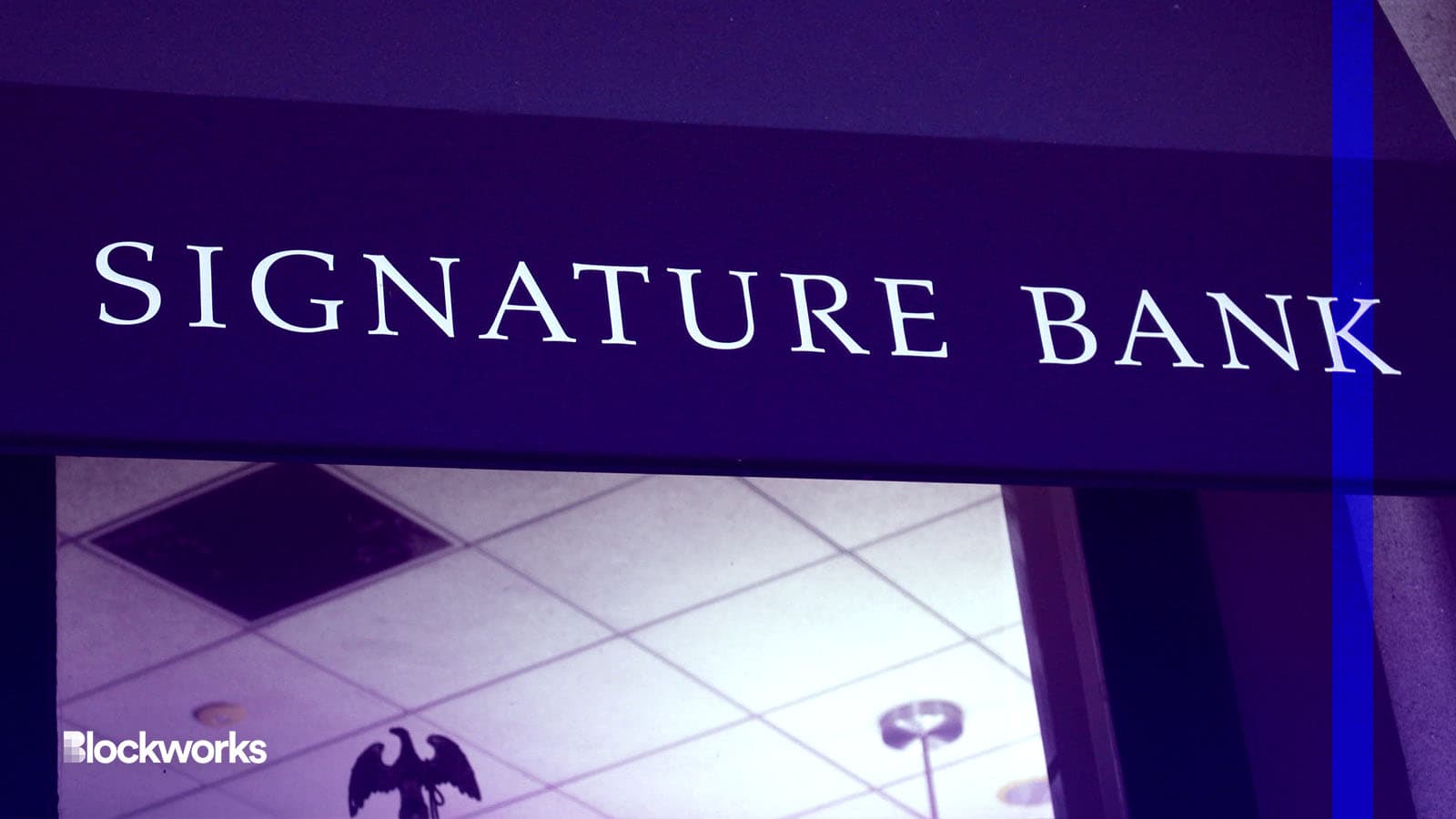Signature Bank Limit on SWIFT Transactions with Binance Affects Few
Crypto bank Signature has told Binance it would no longer be servicing customer transactions via SWIFT below a $100,000 threshold come February

Source: Shutterstock / PL Gould, modified by Blockworks
Signature Bank has told Binance it will no longer be handling SWIFT transactions for its customers below $100,000 next month in a bid to decrease its reliance on digital asset deposits.
Support for transactions below the threshold from its fiat trading partner would cease by Feb. 1, Binance said in a statement seen by Blockworks. Users will be unable to buy and sell crypto via their Signature bank account using the interbank messaging system following the limitation.
Using one of the other fiat currencies supported by Binance, including euros, and Binance’s P2P marketplace will continue to operate as usual, Blockworks was told. Bloomberg first reported the news.
A spokesperson for Binance told Blockworks the exchange was “actively working” to find an alternative solution. Fewer than about 0.1% of its average monthly users are currently being serviced by the bank, they said.
The change doesn’t affect the vast majority of Binance’s users, who already use national or regional payment rails — such as SEPA in the EU and ACH in the US — to on- and off-ramp local currency to crypto exchanges.
Other banking partners of Binance have yet to follow up with similar announcements, including many across South East Asia — a region heavily serviced by the bank.
Signature, a New York State-chartered commercial bank and FDIC member, is a major partner to many of the industry’s leading exchanges including OKX, Bitstamp, Bithumb, eToro, Huobi and Kraken.
In its statement, Binance said all of Signature’s existing crypto exchange clients would be impacted by the move come February. When pressed, Binance’s spokesperson told Blockworks the team working on the issue was based in separate timezones and as such were unable to provide evidence to back the exchange’s claim on short notice.
Signature is attempting to limit its exposure to digital asset deposits following a “challenging cryptocurrency environment” spurred on by several bankruptcies and failures last year, Signature said in an earnings call last week.
Total deposits in the fourth quarter for the bank declined by roughly $14.2 billion to $88.6 billion, primarily driven by its planned reduction in digital asset banking deposits, which fell about $7.4 billion, the bank said.
Blockworks was previously told by Signature it was in the process of decreasing digital asset deposits to between 15% and 20% of the total $110 billion in various assets it holds.
The bank did not immediately reply to a request for comment.
Get the news in your inbox. Explore Blockworks newsletters:
- The Breakdown: Decoding crypto and the markets. Daily.
- 0xResearch: Alpha in your inbox. Think like an analyst.






